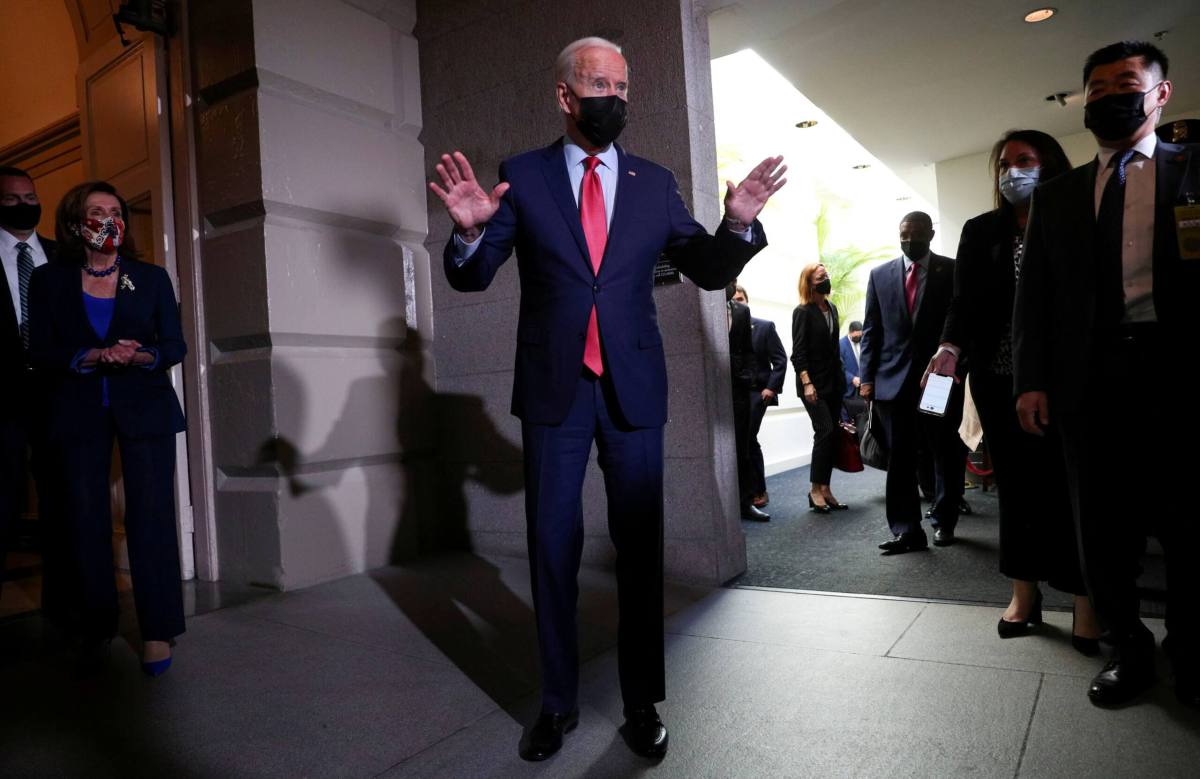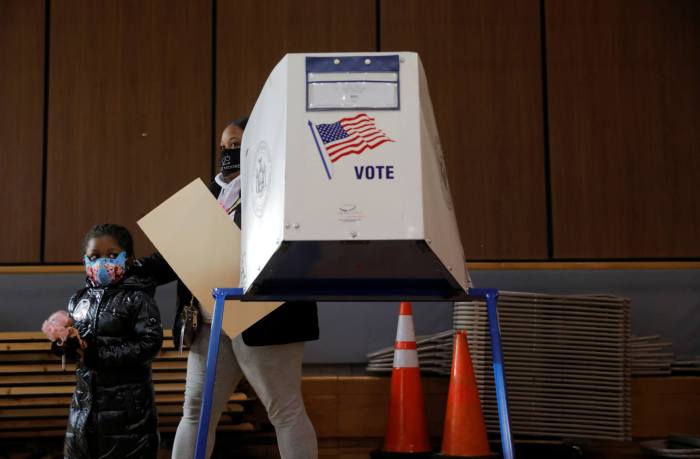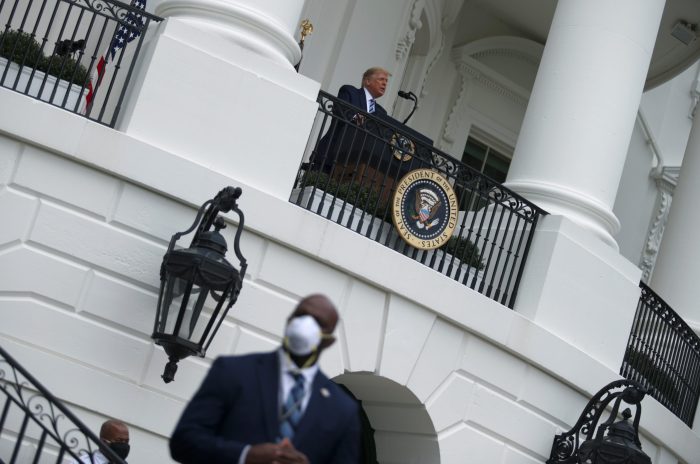Democrats will be disappointed as the party is forced to scale back President Joe Biden’s sweeping infrastructure and social agenda amid opposition from Republicans and some moderate members of his party, a senior White House advisor said on Sunday.
“People will be disappointed. People will not get everything they want, that is the art of legislating, but the goal here is to get both bills, and we’re going to fight until we get both bills,” Cedric Richmond, director of the White House Office of Public Engagement, said on NBC’s “Meet the Press.”
Richmond, a former member of the House of Representatives, spoke two days after Biden visited the Capitol on Friday to try to end a fight between moderates and progressives in his Democratic Party that has threatened the two bills that make up the core of his domestic agenda – an infrastructure bill and a multi-trillion-dollar social spending bill.
A sweeping bill intended to bolster the social safety net and fight climate change will need to be pared from a $3.5 trillion goal, perhaps to closer to $2 trillion, Democrats said following Biden’s visit. Moderate Democrats, particularly Senators Kyrsten Sinema and Joe Manchin, have refused to support the larger number. Manchin has said he could accept a bill closer to $1.5 trillion, while Sinema has not committed publicly to a number.
After earlier agreeing at moderates’ urging to hold a House vote last week on a $1 trillion infrastructure bill that passed the Senate in an August bipartisan vote, House Speaker Nancy Pelosi canceled the vote at the urging of progressives who want both bills to move in unison.
Senate Majority Leader Chuck Schumer said on Sunday the goal is to get both the infrastructure and social spending bills done in the next month. Congress also needs to act in the next month to prevent the federal government from a catastrophic debt default.
The influential chair of the 95-member Congressional Progressive Caucus, Representative Pramila Jayapal, said on Sunday an acceptable range for the social spending bill would be somewhere between $1.5 trillion and $3.5 trillion.
Moderate Democratic Senator Joe Manchin has said his top line for the package is $1.5 trillion, but Jayapal told CNN: “That’s not gonna happen. Because that’s too small to get our priorities in. So, it’s gonna be somewhere between 1.5 and 3.5 (trillion dollars).”
Progressive Democratic Senator Bernie Sanders, chairman of the Senate Budget Committee, told ABC News Sunday that $3.5 trillion “should be a minimum. But I accept there is going to have to be give and take.”
Biden said Saturday he would “work like hell” to get the pieces of legislation passed and would be traveling to promote them.
Republicans flatly oppose the social spending bill and mocked the Democrats’ decision to cancel the infrastructure vote last week. “You saw last week an epic collapse of President Biden’s agenda, but they’re not going to stop there,” House Republican whip Steve Scalise told Fox News’ “Sunday Morning Futures.”
Both Jayapal and another prominent progressive Democrat, Representative Alexandria Ocasio-Cortez, said Sunday that one way to trim the social spending plan would be to fund some programs for a shorter time period than originally envisaged.
But they both also suggested the proposals to fight climate change were not negotiable.
“We cannot afford to increase carbon or just fossil fuel emissions at this time. That is simply the science, that is not something we can kick down the line,” Ocasio-Cortez told CBS’ “Face the Nation.”
Tensions remain high among Democrats. Sinema on Saturday slammed party leadership for delaying the vote on the bipartisan infrastructure package, saying the decision was “inexcusable” and eroded trust. That vote should be held “well before” Oct. 31, Pelosi said Saturday.
Democrats have limited time to reach agreement on the larger bill, as they face several other deadlines in the weeks ahead.
The most critical comes first. The Treasury Department has warned it will be unable to pay its bills by around Oct. 18 unless Congress acts to raise or suspend the $28.4 trillion debt limit. That could trigger a historic debt default that would take a heavy toll on the United States and world economies.
Republicans have thus far refused to vote to address the crisis, saying that Democrats should use a parliamentary maneuver called “budget reconciliation” to do so. Schumer has refused, calling the debt ceiling a bipartisan responsibility and noting that about $5 trillion of the nation’s debt was the result of actions taken during Republican Donald Trump’s administration.






































